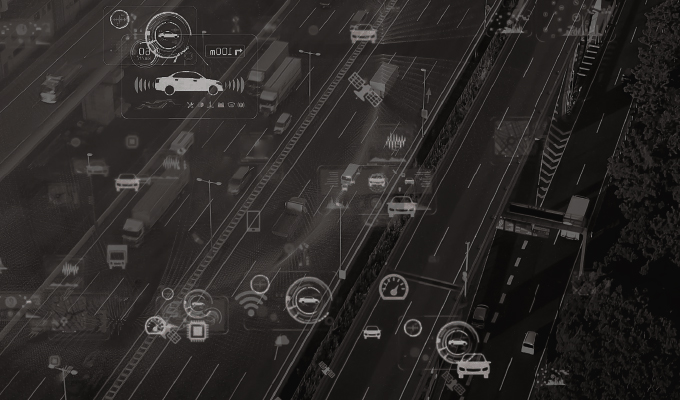In our Industry Insight column for this month (page 12), we began a conversation with Belinda Rueffer, vice president of marketing for GPS Insight. In the first half of the conversation, Belinda tackled topics such as ways to save at the pump—or the charging station—and how dash cameras increase safety as well as why some fleets might be hesitant to adopt them. Read the remainder of the conversation below to learn how implementing technology in the fleet benefits more than just the fleet, how sustainability efforts look different for different fleets, and industry trends.
MWS: WITH TECHNOLOGY ADVANCING SO RAPIDLY, IT’S CLEAR THAT FLEETS COULD USE TELEMATICS SYSTEMS TO THEIR ADVANTAGE—AND THE ADVANTAGE DOESN’T ONLY BENEFIT THE FLEET. WHAT ARE SOME WAYS TELEMATICS SYSTEMS STREAMLINE SUSTAINABILITY EFFORTS?
RUEFFER: The unfortunate truth is that heavy-duty vehicles, like those that comprise a fleet, contribute greatly to air pollution, generating more than 25% of the total global warming emissions from the transportation sector, according to the Union of Concerned Scientists. Telematics data provided by GPS Insight solutions give insights into driver behavior that can inform and support sustainability efforts, such as:
- Reducing unnecessary engine idling that contributes to excessive CO2 emissions and air pollution
- Increasing route efficiency and significantly reducing greenhouse gas emissions
- Identifying and purchasing the most appropriate size and class of vehicle for the intended application
- Scheduling maintenance reminders to stay up to date on oil changes, air-filter changes, and emissions testing
In addition, telematics data help managers institute fuel-efficient driving practices and create rewards programs that offer incentives for conserving fuel.
MWS: WE MENTIONED DIFFERENT TYPES OF FLEETS EARLIER, AND OUR READERS WORK IN ALL AREAS OF THE INDUSTRY. WITH THAT IN MIND, HOW DO SUSTAINABILITY EFFORTS LOOK DIFFERENT FOR GOVERNMENT FLEETS VS PRIVATE COMMERCIAL FLEETS?
RUEFFER: Government fleets—whether state, local, or federal government, college, or public safety—face special challenges ranging from stricter regulations to greater public scrutiny and more complex accounting standards. In these regards, government fleets have higher levels of accountability to the public than private fleets, and it is perhaps even more imperative for them to reduce their carbon footprint, institute more green initiatives, and save money.
One key initiative on these fronts is replacing conventional vehicles with electric vehicles, which not only reduces emissions, but also cuts maintenance and operating costs. The federal government’s eGallon calculator shows that an EV costs less than half its gasoline counterpart to go the same distance. The calculator is based on residential rates. Public fleets that have their own solar or wind power will pay even less. There are also federal incentives to encourage the switch to EVs, which can reduce the higher purchase costs.
MWS: WHAT HAVE BEEN THE KEY TRENDS FOR SUSTAINABILITY, OR TELEMATICS TECHNOLOGY IN GENERAL, FOR 2022? WHAT DO YOU FORESEE AS TRENDS FOR 2023?
RUEFFER: Key trends for 2022 have included a focus on reducing fuel costs, combating driver shortages, implementing safety programs, and building emissions-reducing sustainability goals. Increasingly, companies are asking for enhanced reporting capability to show where they are today in terms of environmental impact and to provide tracking mechanisms for showing improvements over time and progress against goals. Finding ways to reduce fleet costs are always on the table; and finding ways to do so while reducing environmental impact is a significant trend going forward.
MWS: ADDITIONAL THOUGHTS?
RUEFFER: GPS Insight is collaborating with third parties to incorporate electric vehicle charging and fleet vehicle performance into our fleet management solutions to support the wave of government and private fleets incorporating EV technology into their businesses in the coming years.
Additionally, GPS Insight has a never-before-seen integration of fleet management and field optimization technologies that help generate significant cost savings for the organization as a whole. Fleet and field automation and optimization can help companies not only contribute to their companies’ sustainability efforts but also provide a foundation for substantial reductions in materials. Field service organizations can use the savings their field service automation systems deliver to expand into new markets, enhance customer service, and increase the productivity of every driver and field engineer they employ.
By implementing simple measures that reduce carbon emissions and fuel inefficiency, GPS Insight helps fleet and field managers improve efficiency, productivity, safety, and customer service while helping reduce air pollution. To stay up to date with our initiatives and industry-leading solutions, visit our website and follow our social channels.
FOR MORE INFORMATION
Belinda Rueffer is vice president of marketing at GPS Insight. With nearly a decade of experience in the transportation and fleet industries, Rueffer is an advocate for driver and vehicle safety initiatives and the technologies that fuel them. Based in Dallas, Texas, Rueffer has an MBA in marketing and is honored to be recognized as a leader in transportation and supply chain by Moxy: The Voice of Women in Infrastructure. Find out more, visit www.gpsinsight.com.




